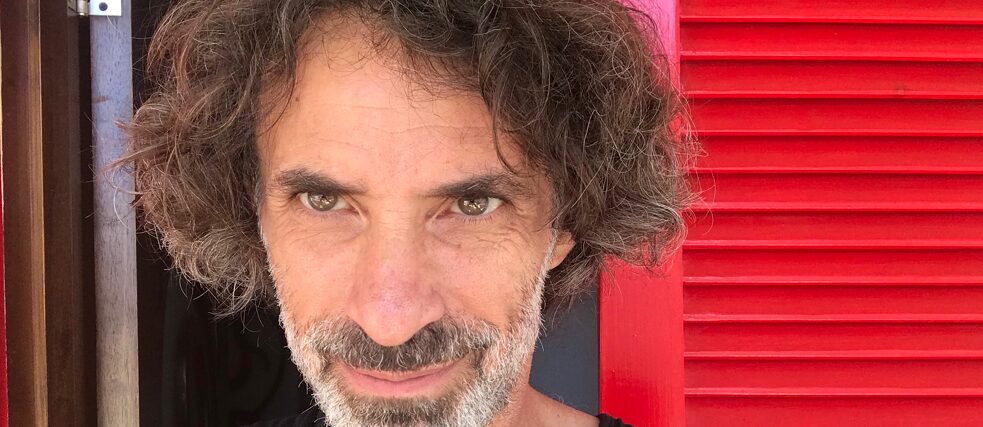Interview to the exhibition “This Is Not Lebanon”
“The Lebanese people are lost”

The festival “This Is Not Lebanon” will be presenting very different artistic perspectives on the situation in the hard-hit country from August 26 to September 12 in Frankfurt. One of the curators is the performance and media artist Rabih Mroué.
By Annette Walter
Mr. Mroué, could you please describe the current situation in Beirut right now? You live in Berlin since eight years, but you are in Beirut at the moment.
Rabih Mroué: Exactly. I still have an apartment in Beirut, my family und many connections. Over the years since 1990, we have been suffering from the government, who act like warlords. Since October 2019, we call it a revolution, an uprising against the corrupt situation. The economy collapsed. At present there is a very severe and harsh crisis. The Lebanese currency, the pound, has lost 200 per cent of its value. Someone who got for instance 3000 Pounds a month, is now getting an equivalent of 200 Pounds. Prices are going up.
What does that mean for the population?
Rabih Mroué: People are fighting for their daily needs. They have to find fuel for their cars. There is not always water and electricity, except from private generators.
How does the government react to this situation?
Rabih Mroué: The government is absent and does not exist. They transfer their money outside the country. The bank system is aligned with the corrupt government. All the money people own is confiscated by the banks, and the banks are protected by the government. We have no access to the money we own. The banks gives the people 100 or 200 Dollar a month which is exchanged into the Lebanese currency – they steal money.
What are the feelings of your family and friends?
Rabih Mroué: The Lebanese people are lost, waiting for what will come. Every day brings worse things. Hope is almost zero - however, there is hope. The city of Beirut is very sad.
The festival is called “This Is Not Lebanon”. What is the intention of the title?
Rabih Mroué: We want to convey an alternative perspective. There are simplifying reports about the situation in Lebanon. The situation is contrary to the reports we read in the Western media.
How do you want to change the perception of Lebanon in the Western media with the festival?
Rabih Mroué: When we have a festival, you can learn something about Lebanon. We bring people to talk about and represent the situation in Lebanon. However, the title says: Don’t expect us to bring people to represent the Lebanese. Those artists and writers who come to this festival, they only come to represent themselves as individuals. This is very important because it is very problematic to talk “in the tongue” of the Lebanese or to represent the Lebanese – it’s very dangerous. So it is like a very individual point of view.
Can you tell us more about the programme of the festival?
Rabih Mroué: Very different artists perform at the festival. For example, a world premiere by Lawrence Abu Hamdan, one of the currently most interesting artists in Lebanon, who creates audiovisual installations and performances, but also Marwa Arsanios, star of the last Berlin Biennale, with a feminist and performative video installation. The Ensemble Modern is developing a music program. There is also a concert of Bo Nasser Toufar, one of the distinguished rappers in Lebanon.
All of the artists will be able to share their thoughts, their ideas with other people, without simplifying the topic and not to teach, but to open a discussion. They try to change the clichés and norms spread by the media and to make it more complex to the audience. The situation in this region is not difficult to understand, but it needs an effort to understand it. We don’t want to simply divide it into good and evil, into this simple dichotomy. It is much more complex than this.